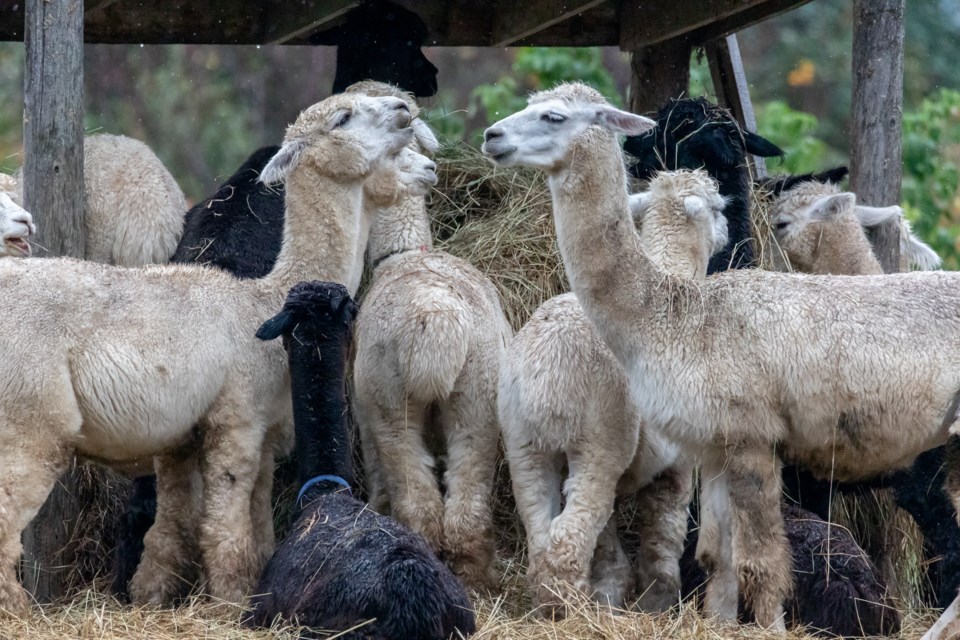A near two-decade run of an Alpaca hobby farm business is winding down for Bruce Mines couple Robert and Denise Martel.
On Oct. 27, 2021, the couple will leave the farm and begin the new chapter of their lives known as retirement.
Meadowview Alpaca Farm was purchased in January of 2002 and the first Alpacas arrived at it in May of 2003.
They started with a mix of two males and 7 females. Four babies known as Crias were born that first summer.
The average life span of Alpacas is estimated between 16 and 22 years of age and the farm still hosts one of those original Crias.
Presently Meadowview is home to 100 Alpacas, and the herd had topped out at 130 in the past proving to be a full barn. Many Alpacas have been bought and sold over the years.
The Martel’s lovingly refer to their farm as “The hobby farm gone wild.”
In addition to their Alpacas, the farm is home to two Llamas, chickens and two cuddly barn cats.
For the public, Meadowview Alpaca Farm offers tours, a store, occasional workshops in the studio such as felting and even open houses.
As expected, COVID has curtailed some of the indoor activities. Outdoor tours of the Alpacas and the shearing shed are presently being booked in accordance with public health guidelines.
Robert and Denise would like you to know it’s business as usual up to the transfer and beyond. There may be a short interruption in booking during the time the house is being packed moved and settled but the animals will be cared for during the transition and the farms daily routines will continue.
The new owners – Pat and Terri Veerman and their two teenage children will arrive from the London area on Oct. 28 and will start their new learning journey immediately at the farm.
Despite the appearance of an easy laid back atmosphere the farm has a relatively regimented schedule. The farm chores include early morning feeding, daily clean-up of the barn and evening feeding. There are husbandry activities as needed, hay harvesting and storing for winter, in addition to maintenance of fences and grounds.
Fibre-related chores such as shearing, classing, batching, preparation and shipment for mill processing, return of yarns and batts and taking those products on to the finishing stage with various artisans happen both seasonally and throughout the year. All important aspects of keeping the supply chain active and moving forward in a timely manner.
Products such as ponchos, shawls, cowls, mitts, toques and felted items are produced by the various artisans the farm employs and sold to the public via farmers markets and online sales.
The Martel’s recall starting out and learning the business as they went along. Learning the animal behaviour is key to success for building a viable herd in addition to controlled breeding and tracking of lineage and developing good food plans to keep the Alpacas healthy and producing quality fibre that will continue through the generations.
As the transition happens Robert and Denise have made it clear they will be a face on the landscape for some time to come. They have committed to being available to the Veerman’s as mentors in their journey to learn the farm and all its aspects and routines for as long as they are needed.
